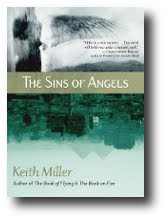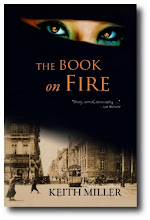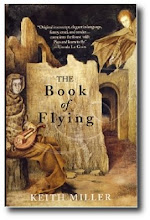
Lawrence Durrell: "Would you rather read Henry James or be crushed to death by a great weight?"
Oscar Wilde: "Mr. Henry James writes fiction as if it were a painful duty."
E. M. Forster: "So enormous is the sacrifice that many readers cannot get interested in James, although they can follow what he says (his difficulty has been much exaggerated), and can appreciate his effects. They cannot grant his premise, which is that most of human life has to disappear before he can do us a novel. . . . Maimed creatures can alone breathe in Henry James’s pages – maimed yet specialised."
Arnold Bennett: "It took me years to ascertain that Henry James's work was giving me little pleasure . . . In each case I asked myself: 'What the dickens is this novel about, and where does it think it's going to?' Question unanswerable! I gave up. Today I have no recollection whatever of any characters or any events in either novel."
T. S. Eliot: "He had a mind so fine that no idea could violate it."
Marilyn "Clover" Adams: "It's not that he 'bites off more than he can chew' but he chews more than he bites off."
H. L. Mencken: "An idiot, and a Boston idiot to boot, than which there is nothing lower in the world."
Vladimir Nabokov: "He writes with a very sharp nib and the ink is very pale and there is very little of it in his inkpot . . . The style is artistic but it is not the style of an artist . . . Henry James is definitely for non-smokers. He has charm (as the weak blond prose of Turgenev has), but that’s about all."
More from Nabokov: "I have read (or rather reread) 'What Maisie Knew.' It is terrible. Perhaps there is some other Henry James and I am continuously hitting upon the wrong one?"
Even more from Nabokov: "Henry James is a pale porpoise."
Virginia Woolf: "Please tell me what merit you find in Henry James . . . We have his works here, and I read them, and can’t find anything but faintly tinged rose water, urbane and sleek, but vulgar, and as pale as Walter Lamb. Is there really any sense in it?"
Jorge Luis Borges: "Despite the scruples and delicate complexities of James his work suffers from a major defect: the absence of life."
Cormac McCarthy (from a
New York Times interview): Proust and Henry James don’t make the cut. “I don’t understand them,” he says. “To me, that’s not literature. A lot of writers who are considered good I consider strange."
Jonathan Franzen: "I tried to start
Portrait of a Lady last night, which I had read only in college . . . maybe it was too late to read anything, but I became so impatient with the multiple redundancies in the first paragraph that I cast it aside in anger. The first paragraph alone! You really have to be in the mood for Henry James."
And finally, Mark Twain said he would rather "be damned to John Bunyan's heaven" than read Henry James's novel
The Bostonians.






